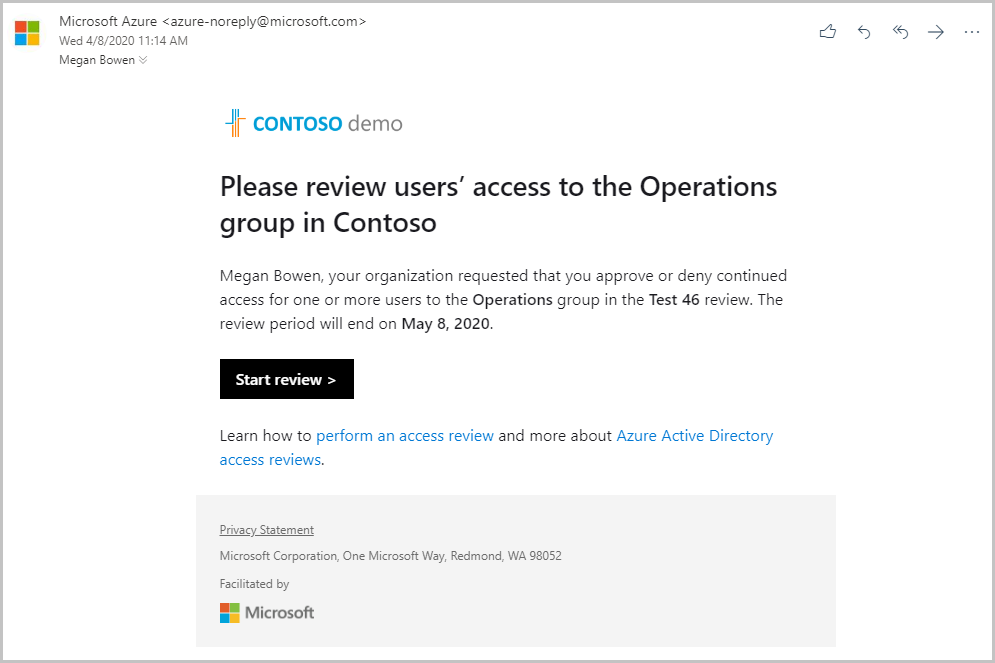
Microsoft Entra ID simplifies how enterprises manage access to groups and applications in Microsoft Entra ID and other Microsoft web services with a feature called access reviews. This article covers how a designated reviewer performs an access review for members of a group or users with access to an application. If you want to review access to an access package, read Review access of an access package in entitlement management.
You can review access to groups and applications via My Access. My Access is a user-friendly portal for granting, approving, and reviewing access needs.
There could be delays in receiving email. In some cases, it could take up to 24 hours. Add MSSecurity-noreply@microsoft.com to your safe recipients list to make sure that you're receiving all emails.

You can also view your pending access reviews by using your browser to open My Access.
After you open My Access under Groups and Apps, you can see:
Select the name of an access review to get started.
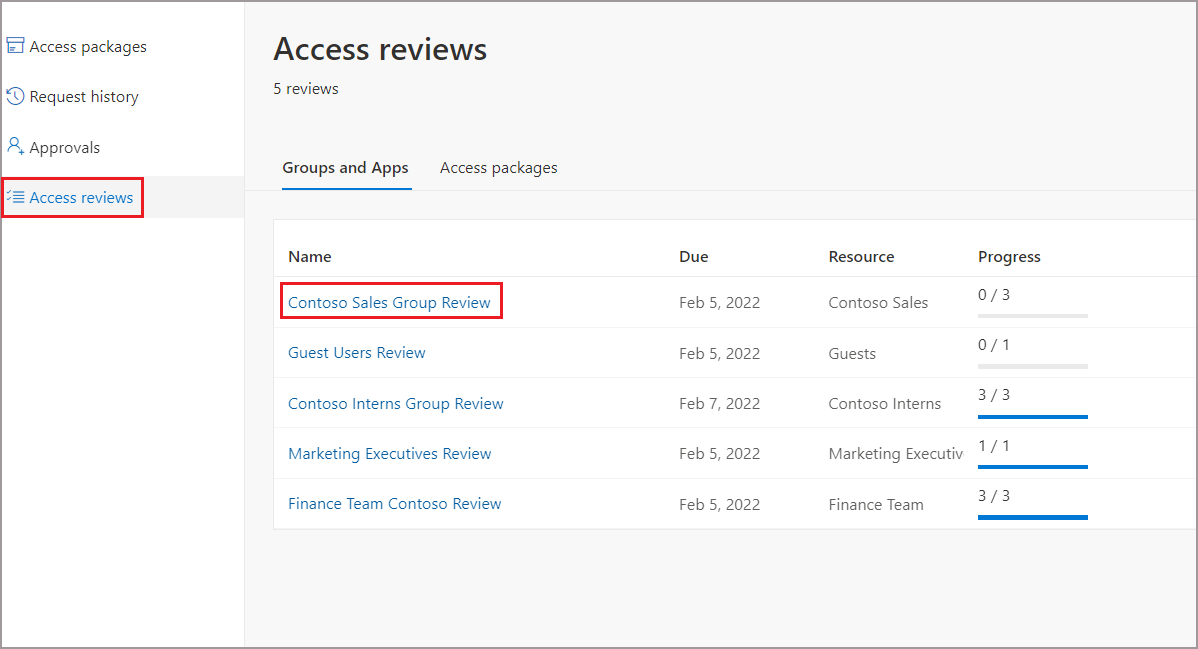
After it opens, you'll see the list of users in scope for the access review.
If the request is to review your own access, the page will look different. For more information, see Review access for yourself to groups or applications.
There are two ways that you can approve or deny access:
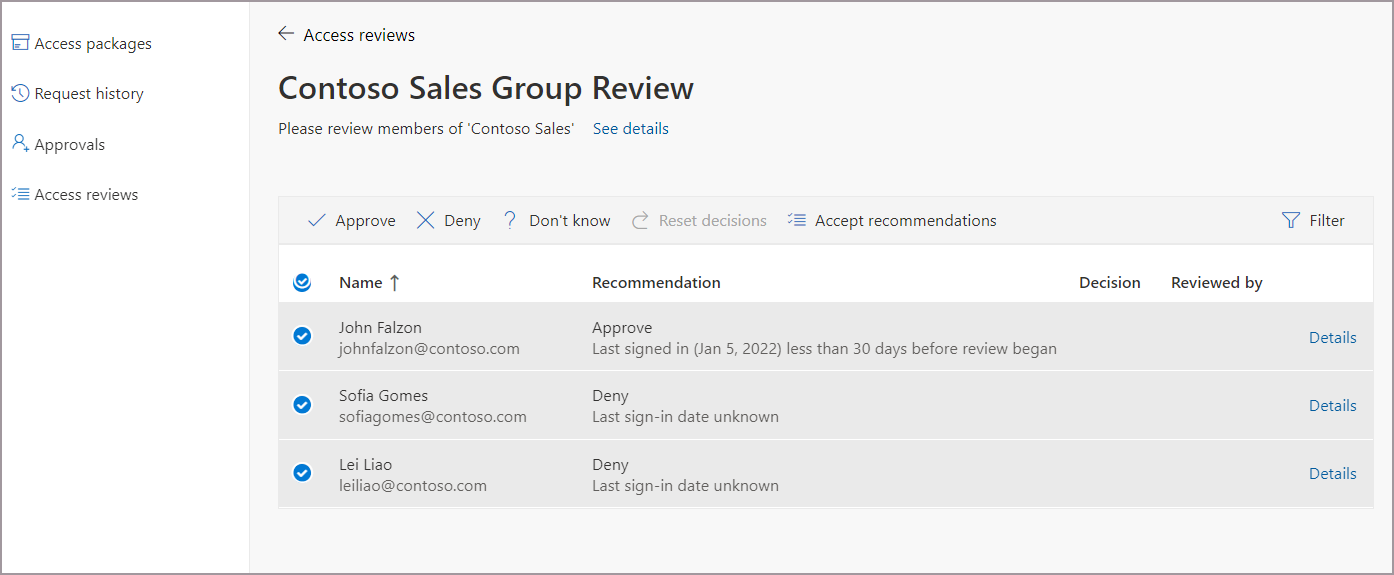
To make access reviews easier and faster for you, we also provide recommendations that you can accept with a single selection. There are two ways that the system generates recommendations for the reviewer. One method is by the user's sign-in activity. If a user has been inactive for 30 days or more, the system recommends that the reviewer deny access.
The other method is based on the access that the user's peers have. If the user doesn't have the same access as their peers, the system recommends that the reviewer deny that user access.
If you have No sign-in within 30 days or Peer outlier enabled, follow these steps to accept recommendations:
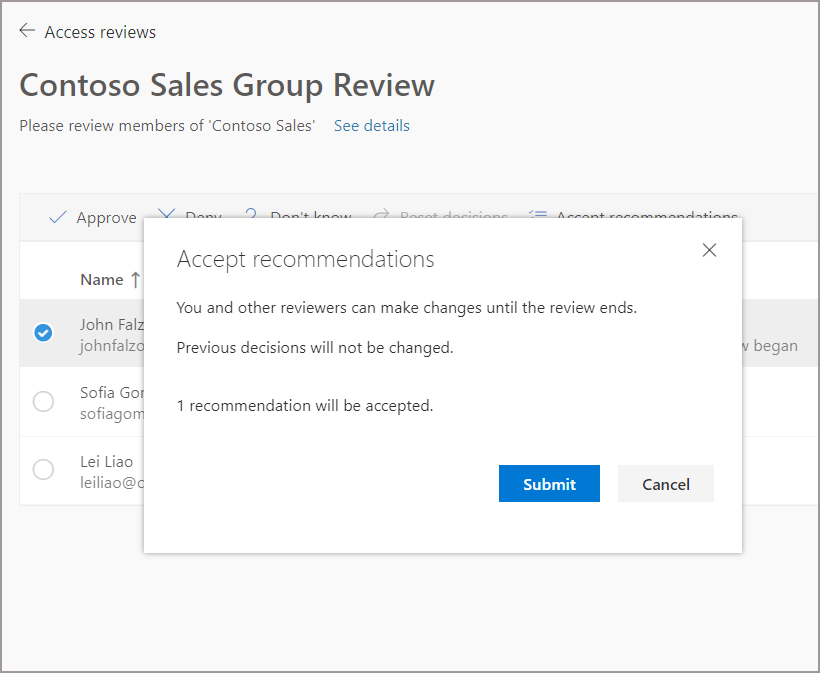
When you accept recommendations, previous decisions won't be changed.
If the administrator has enabled multi-stage access reviews, there will be two or three total stages of review. Each stage of review has a specified reviewer.
You'll either review access manually or accept the recommendations based on sign-in activity for the stage you're assigned as the reviewer.
If you're the second-stage or third-stage reviewer, you'll also see the decisions made by the reviewers in the prior stages, if the administrator enabled this setting when creating the access review. The decision made by a second-stage or third-stage reviewer overwrites the previous stage. So, the decision that the second-stage reviewer makes overwrites the first stage. And the third-stage reviewer's decision overwrites the second stage.
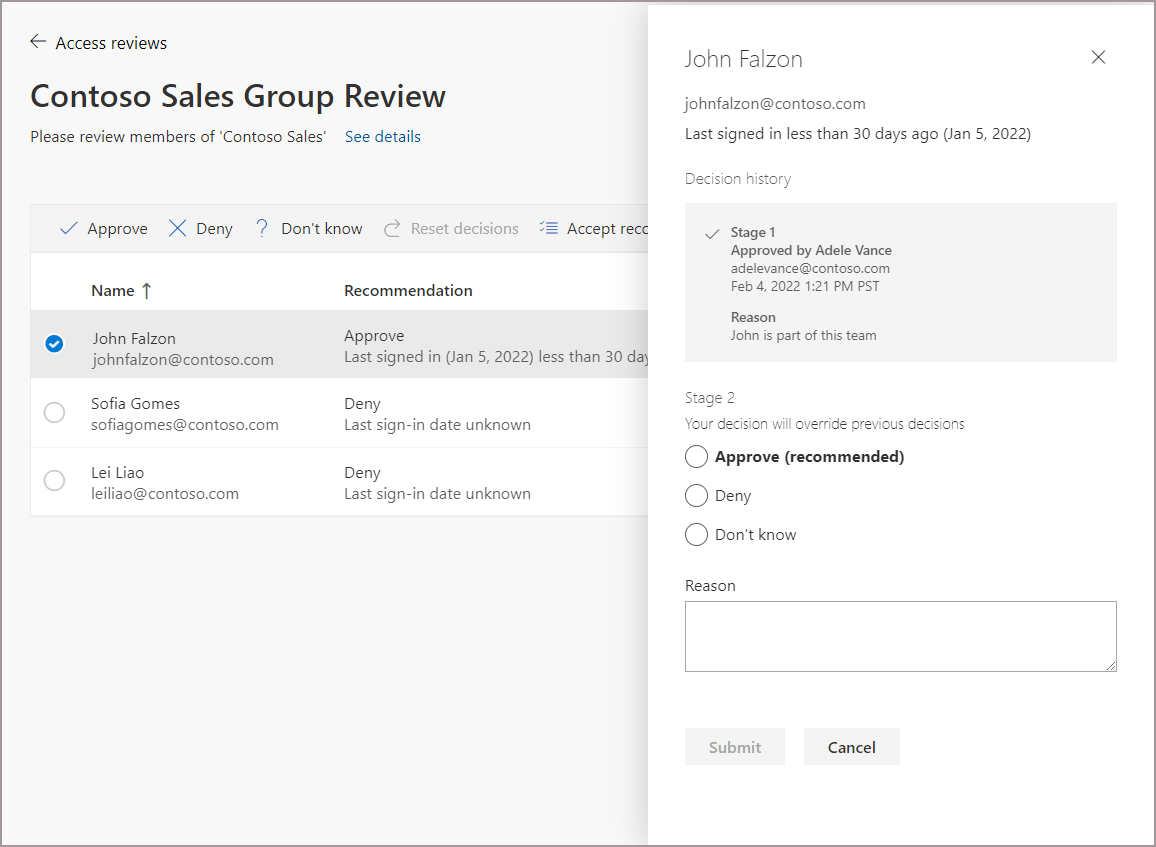
Approve or deny access as outlined in Review access for one or more users.
The next stage of the review won't become active until the duration specified during the access review setup has passed. If the administrator believes a stage is done but the review duration for this stage has not expired yet, they can use the Stop current stage button in the overview of the access review in the Microsoft Entra admin center. This action will close the active stage and start the next stage.
To review access of B2B direct connect users, use the following instructions:
Unlike internal users and B2B collaboration users, B2B direct connect users and teams don't have recommendations based on last sign-in activity to make decisions when you perform the review.
If a team you review shares channels, all B2B direct connect users and teams that access those shared channels are part of the review. This includes B2B collaboration users and internal users. When a B2B direct connect user or team is denied access in an access review, the user loses access to every shared channel in the team. To learn more about B2B direct connect users, read B2B direct connect.
When the access review is set up, the administrator can use advanced settings to determine what happens if a reviewer doesn't respond to an access review request.
The administrator can set up the review so that if reviewers don't respond at the end of the review period, all unreviewed users can have an automatic decision made on their access. This includes the loss of access to the group or application under review.